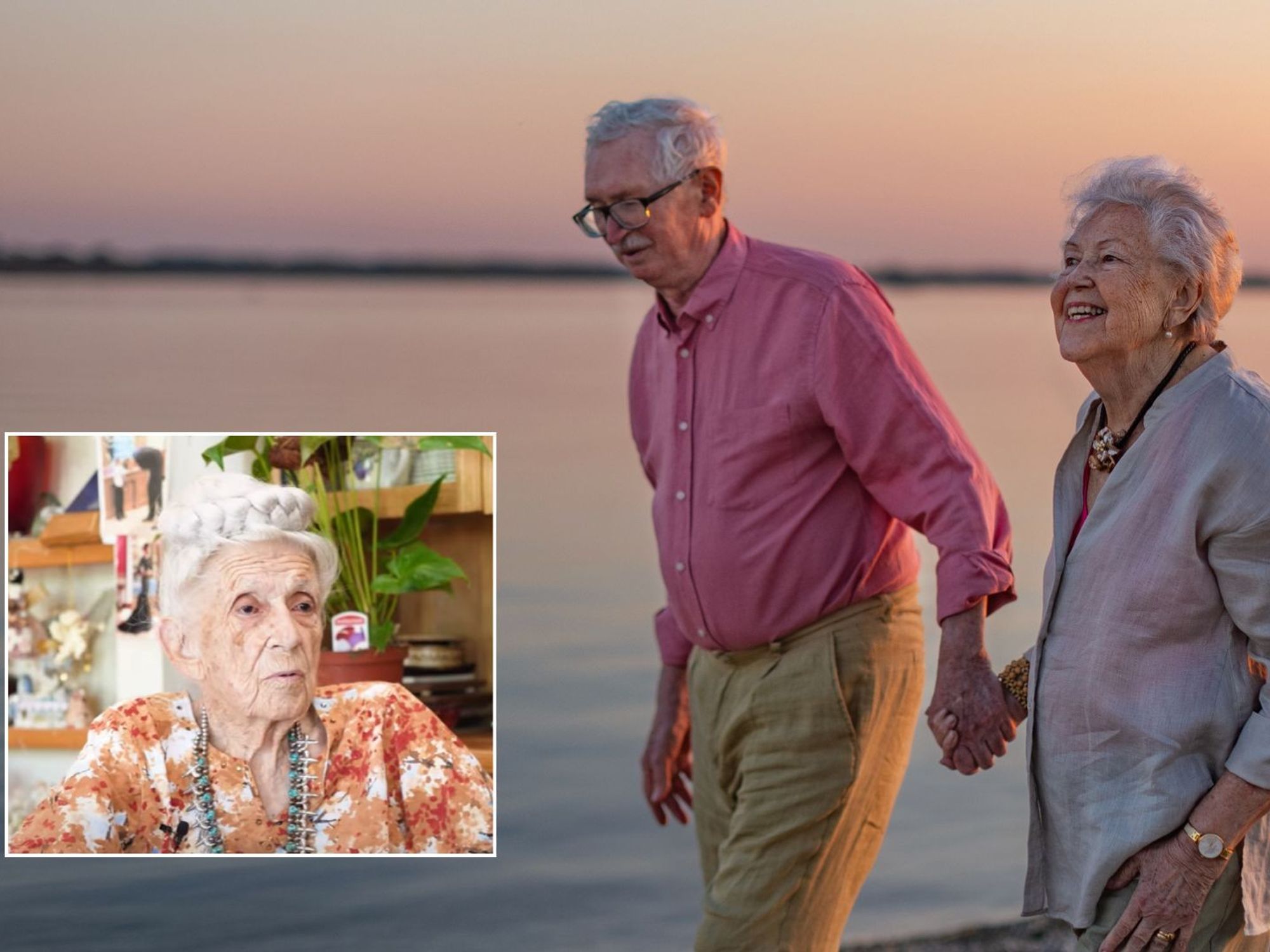New study has found an association between falling over and dementia
Getty Images
The study underscores the need for more clinicians who can provide care for older adults
- Large study links falling over to increased risk of dementia
- Researchers attribute the association to motor function loss
- One in three people over 65 have at least one fall annually
Don't Miss
Most Read
Trending on GB News
A new study has revealed a concerning link between falls in older adults and an increased risk of dementia.
The research is a sobering reminder that age is not the only risk factor - and that taking a tumble can sow the seeds of cognitive decline.
Researchers at Brigham and Women's Hospital, part of the Mass General Brigham healthcare system, found that older individuals who experienced a traumatic injury from falling were over 20 per cent more likely to be diagnosed with Alzheimer's disease or another form of dementia.
The retrospective cohort study, published in JAMA Network Open, analysed data from more than two million older adults who had sustained traumatic injuries.
Strikingly, over 10 per cent of these individuals received a dementia diagnosis within a year of their fall. These findings underscore the importance of fall prevention and early cognitive screening in older adults who experience injurious falls requiring emergency care or hospital admission.

Over 10 per cent of studied inviduals received a dementia diagnosis within a year of their fall
Getty Images
The study's lead author, Doctor Alexander Ordoobadi, highlighted the importance of understanding why falls occur in the first place. He noted that falls are among the most common reasons for trauma centre admissions and can lead to severe injuries.
"We treat the injuries, provide rehabilitation, but often overlook the underlying risk factors that contribute to falls despite a growing body of evidence suggesting a link between falls and cognitive decline," he explained.
The research suggests a two-way relationship between falls and dementia. Doctor Molly Jarman, senior author of the study, pointed out that cognitive decline can increase the likelihood of falls, while trauma from those falls may accelerate dementia's progression.
This complex interplay underscores the potential for falls to serve as early indicators of cognitive decline. The findings emphasise the need for a more comprehensive approach to fall prevention and cognitive health in older adults.
Falls among the elderly are a significant concern in the UK. Every minute, six elderly individuals experience a fall, amounting to approximately 8,500 falls daily.
Studies indicate that one in three people over 65 have at least one fall annually, with the risk increasing to one in two for those aged over 80.
These incidents can have severe consequences, including long-lasting or permanent effects on functional status, loss of independence, and even risk of death.
The link between fall injuries and cognitive outcomes in older adults is becoming increasingly apparent. Motor function loss is often a precursor to cognitive decline and can also heighten the risk of falls.
Despite this connection, current fall prevention guidelines do not closely consider cognitive health.
The researchers analysed Medicare Fee-for-Service data from 2014-2015, encompassing over 2.4 million older adult patients who experienced traumatic injuries. Follow-up data for one year after the initial fall was also examined.
The study's findings have led to important recommendations for healthcare providers. Researchers suggest implementing cognitive screenings for older adults who experience injurious falls resulting in emergency department visits or hospital admissions. This approach could help detect dementia sooner and improve early identification of cognitive decline.
However, implementing these screenings presents challenges. Doctor Ordoobadi noted the lack of ownership in the follow-up screening process, citing time constraints in emergency departments and trauma centres.
"Ideally, after an injury, older adults should receive follow-up care with a primary care provider or geriatrician who can monitor their cognitive health and long-term functional recovery," he explained.
The study also highlights disparities in access to primary care among older adults, with many lacking regular primary care providers or access to geriatricians.
Doctor Jarman emphasised the need for more clinicians capable of providing comprehensive care for older adults, including cognitive assessments after fall injuries. This approach could significantly improve the management of cognitive health in the elderly population.
LATEST HEALTH DEVELOPMENTS
- The eight best things baby boomers can do for their health
- Doctor Q&A: Why am I spitting blood?
- These two supplements can stop brain decline

Walking and balance exercises are free and effective ways of preventing falls
GETTYHow to reduce the risk of falling
The NHS recommends several ways to reduce the risk of falls at home. These include immediately mopping up spillages, removing clutter and frayed carpets, and using non-slip mats and rugs.
Ensuring good lighting in all areas of the home is crucial to prevent falls, says the health body. So is organising living spaces to minimise climbing, stretching, and bending.
The NHS advises against walking on slippery floors in socks or tights and wearing loose-fitting clothes that might cause trips.
Well-fitting, supportive shoes are recommended, as is taking care of foot health.
Regular physical activity, particularly balance and strength training, can help maintain strength and reduce fall risks too.
One study, published in Jama Network, found that participating in at least 150 minutes of leisure-time physical activity per week was associated with a reduced risk of falls.
Walking is a free and effective form of exercise.
By implementing these simple changes and maintaining an active lifestyle, older adults can significantly reduce their risk of falls and potentially lower their chances of developing dementia in the future.








